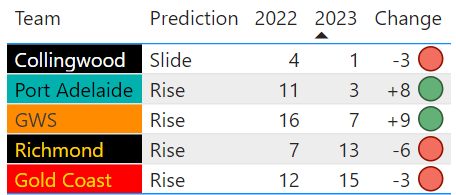Manchester City and the Implications of Financial Fair Play Ruling
Manchester City’s dominance in European football over the last few years is unquestionable. Despite this, that dominance has attracted many eyes from all over the world, including that of Uefa’s Financial Fair Play Body.
As many of us have seen, as a result of breaches to the Financial Fair Play conduct, Manchester City have been banned from the Champions League for the next two seasons. This ban will undoubtedly be taken to the courts, but considering the size of this club, and other clubs that play in the Champions League, we thought it’d be interesting to map out the financial implications by the numbers.
Here is our analysis.
The Ruling
The ban came about from “serious breaches” of the FFP policy in relation to the majority of Man City funds coming directly from their owner, Sheikh Mansour, rather than their major sponsor, Etihad. On top of this, the clubs refusal to provide financial statements when requested caused further concerns for the regulatory body, who deemed the evidence sufficient enough to ban City from the Champions League for the next two seasons.
Some Context
From a data perspective, this ruling is very interesting because the financial implications for Manchester City are huge. We have gathered up some data which should contextualize the expected losses for a club of such a size in a more holistic light.
Top 10 Highest Valued Clubs
As you can see already, Manchester City is undoubtedly an extremely valuable enterprise, worth almost half a billion Euros more than the reigning European Champions Liverpool.
So, Manchester City is valued at approximately 2.5 billion Euros. On top of this, it earns almost another 800 million Euros in revenue and operation income as seen in the figure below:
Club Yearly Revenue and Operating Income (millions of Euros)
So now we have some context as to how much Man City is worth, and how much it roughly earns each season. We can now compare this to what the club would win in a number of scenarios dependent on their success in the Champions League this season (if it is to continue) and next to determine what they may stand to lose out on if the court ruling is upheld.
The Implications by the Numbers
Over the past decade or so, Manchester City has grown its name significantly as successful campaigns under Pep Guardiola have seen them win a number of domestic trophies. Last year, Man City were knocked out of the Champions League in the quarter finals, and this year their campaign was halted by the spread of the coronavirus pandemic.
Based on the prize money figures for this season, this is what Man City will earn from a number of scenarios competing in the Champions League.
Accumulated Earnings Per Round & Additional Earnings for Qualifying for Additonal Round
Some notes on interpreting this graph:
The group stage earnings are dependent on the amount of wins, and draws any particular team has. Qualifying for the group stage earns a fixed payment of 15.25 million Euros, a win earns 2.7 million and and draw 0.9 million. In this seasons campaign, Man City had 4 wins, and two draws, totaling 12.6 million Euros, and giving them a total group stage earning figure of 27.85 million Euros.
Qualifying for every additional round earns another fixed payment, with a win in the final fetching an additional 4 million euro bonus on top of the 15 million earned for qualifying.
Conclusion
Depending on how successful you think Man City can be or could have been if they remain banned in the next 2 Champions League campaigns, they stand to lose out on the earnings associated with that potential success. When using the potential earning rewards from this season, the loss could be upwards of 80 million euros per season missed. On top of this, this figure is only including qualification and performance related payments. Considering clubs also earn from their coefficient ranking shares (see below), TV rights sharing, ticketing, and everything else associated with hosting some of the biggest clubs in world football, the missed earnings are likely to be far over 100 million euros per season. No wonder teams fight so hard for those top 4 spots in their domestic leagues!
Some takeaway figures:
Man City would stand to lose approximately 80 million euros under the assumption they can make the final next season
For context, in current market conditions, you could buy almost 8 David Silva’s, or 1 Leroy Sane, with that money
If the ban holds for both seasons, and we assume similar performances to the most recent seasons, this loss would more than double (considering Uefa increases payments by a small % each year)
Each Champions League team gets an equal share of redistributed Uefa earnings - this campaign they were 1.8 million Euros each. This is not included in the above figures, so represents another significant (although relatively small) missed earnings amount on top of the 80 million already identified.
Teams who play in the Champions League are given a coefficient ranking which entitles them to a number of coefficient shares based on their performances over the past 10 years. Man City are entitled to 21 shares this season valued at 1.108 million euros, giving them a total earning of 23.268 million euros. If the ban holds, this may be another loss for the club.
The bigger picture
With the identified potential earnings from a successful campaign, Man City could potentially lose 100 million euros plus, per season missed. This figure is over 15% of their total revenue figure, or approximately 66% of their total operating income, which highlights the severity of the FFP ruling if it comes to fruition. This yearly loss, however, only reflects 4% of the total 2.5bn euro value of the club, but it’s important to remember the huge consequences for the brand and the players when a spot in the Champions League isn’t available. Some players even have clauses in their contracts which suggest they could leave the club if their right to play Champions League football is taken away. These will be the factors that truly impact on the ongoing success of Manchester City.
What we discovered in this process
The great thing about this type of analysis, and one we often discuss as a team, is that some times data analysis doesn’t have to be an extremely complex process. The important thing about any data analysis strategy and the way you visualise it is that it tells a story which makes sense and brings some value to those who read and use it. We hope that you gained some value from reading this, it was definitely a fun process for us!
For more fascinating visualisations and data stories, click here.
To keep up with all things data and White Box, follow us on our LinkedIn page.










